Parliament has been prorogued, but did not go quietly and next week will see two court cases on whether it was lawful or not heard together in the Supreme Court. There were cheers from the sector as Chris Skidmore returned to the University Minister role and Gavin Williamson as Education Secretary also seems to have adopted a more conciliatory role than his predecessor.
Next week sees the start of the party conference season with some interesting HE fringe events for us to report on. With an election on the horizon, these events take on a heightened significance.
Post Study Work Visa
A Government announcement which outlined new genetics research project also served as the vehicle to announce revised post study work visa arrangements.
Under the scheme, international students to work in the UK for two-years post-graduation. A welcome announcement for the HE sector (although we are awaiting for the full details). The post study work visa was championed by Sajid Javid (in his previous Home Office role) and Jo Johnson. With Jo Johnson having stepped down, the PM announced it, in a clear break from the approach of his predecessor. He spoke about ensuring the UK is internationally welcoming and the wisdom of attracting the ‘brightest and best’ to work in the UK. The announcement (so far) overturns the recommendations of the Migration Advisory Committee. Currently overseas students must leave the UK four months after finishing their degree unless they get a separate work visa.
- It applies to any subject
- Apparently there is no restriction on type of work, i.e. it doesn’t have to be “graduate level” jobs.
- There is no cap on the number
- It talks about graduates from “trusted” providers – not defined but likely to mean those already approved for Tier 4 visas.
- Initially the announcements said it would apply to students starting their courses in 2020/21, leading to fears of widespread deferrals, but it seems that it will apply to all students studying in the UK on a Tier 4 visa in 2020/21 – including students who start multi-year courses this September.
Chancellor, Sajid Javid tweeted “about time. Should have reserved this silly policy years ago. Britain should always be open to the best talent from across the world.”
- BBC: Ministers reverse May-era student visa rules
- Alistair Jarvis, Chief Exec Universities UK, welcomed the move, suggesting it would benefit the UK economy and reinstate the UK as a “first choice study destination. Evidence shows that international students bring significant positive social outcomes to the UK as well as £26bn in economic contributions, but for too long the lack of post-study work opportunities in the UK has put us at a competitive disadvantage in attracting those students“.
- The Scottish Government have welcomed the announcement. Scottish Minister for FE & HE, Richard Lochhead: The Scottish Government has been consistent in arguing for the reintroduction of a post-study work visa following the decision by the UK Government to end the previous route in 2012. This is a welcome step forward but only one of many measures required. It should not have taken seven years for the UK Government to accept the arguments from partners across Scotland and reverse their decision. It is clearer by the day that Scotland urgently needs a migration policy tailored to our distinct needs and for the devolution of powers to develop, deliver and maintain policies that meet the needs of Scotland’s universities, communities, public services and economy.
Two for one – ministerial speeches
After Jo Johnson resigned and left UUK with a big gap in their annual conference programme, they fixed the problem by having both the Secretary of State for Education, Gavin Williamson MP, and the newly (re)appointed Minister for Universities, Chris Skidmore. Chris Skidmore was welcomed back as Universities Minister on Wednesday after a brief Ministerial stint in the Department for Health (he called it a placement).
The sector is pretty relieved. Jo Johnson was familiar, and had a positive agenda around international students and participation in EU programmes (see previous story for some of his handiwork), as well as his opposition to the proposed Augar reform of tuition fees but had become rather negative and critical towards the end of his last period in the role. Chris Skidmore, on the other hand, was positive, constructive and engaging last time round. Although he wasn’t in the role long he seemed to be genuinely committed to developing research and as a history graduate and former academic he had some credibility amongst those worried for the future of social sciences and humanities in a world where value for money has been paramount (although see below, it seemed to be less of a priority?)
So what did they have to say?
Gavin Williamson went first.
He called the sector as a national treasure
He spoke about “openness to the world”. See the previous section on post-study work visas
- A recent report by the Higher Education Policy Institute found that after graduation, a single cohort of international students contributes almost £3.2billion in tax over 10 years and plays a key role in filling existing skills shortages in the UK economy. But they bring far more than that. They contribute to the diverse tapestry of our national life; they not only bring the best of the world in, they also help us to look out, and our entire economic and cultural spectrum is the richer for what they bring to our country.
- In the months and years ahead, the partnerships we make through these international networks will be crucial. Partnerships which I know benefits many of our young people through the exchange of ideas and learning. Many of you are wondering about what’s going to happen to them after we leave the EU. I want to reassure you that my department is open to continuing to be part schemes like Erasmus+. But we have to prepare for every eventuality and it is sensible to consider all options. As such I have asked my officials to provide a truly ambitious scheme if necessary.
He challenged the sector on access and participation – a sign that despite changes of leadership, the big focus on this continues. It was a major part of the Johnson reforms (merging OFFA and HEFCE into the OfS) and key in Theresa May’s social mobility agenda (the current government don’t talk as much about social mobility, but they are still looking for an aspiration story). The terminology is interesting. It’s a deal and it isn’t just about access, it’s about working with schools as well.
- When I took on this job, you told me that you wanted the post-study Graduate visas more than anything else. Indeed whenever I spoke to a vice chancellor the first thing I would hear is visas. Well, we listened and the Prime Minister and I have given you what you asked for, what you wanted most.
- So I have to ask you for something in return. I see this as a deal. I expect you, in exchange, to drive greater access to your institutions. Young people from deprived backgrounds who have the ability, deserve to benefit from studying for a degree.
- We cannot forget that ability is evenly spread across this country but opportunity – sadly – is not. We must continue to crusade to put that right.…
- And I have another challenge for you: I want you to be ambitious in your engagement with the wider education landscape, with schools, colleges, and employers: share your resources and expertise, drive excellence across the sector more widely. You are world leaders but you need to share your expertise with everyone in the country. I’d like to thank those universities like Kings College and Exeter who have set up maths specialist free schools; and other universities that are in the process of doing so. What you are doing will change lives. I encourage others to rise to the challenge. I expect others to rise to the challenge.
- I see this as a shared effort and I want to work with all of you in the sector to make sure all our children have access to this kind of excellence and expertise….
- The sector plans to spend around £1billion this year alone on improving access. But we still don’t know enough about what’s working and what isn’t. This is taxpayers money. This is students’ money. This isn’t about virtue signalling. This is about one thing, and one thing only. And that is ensuring that talented young people, from Southend to South Shields, can get on.
- It is your duty and our duty to make sure that happens. So as a priority, the OfS needs to ensure that evaluation programmes are in place to make sure these schemes are doing what they are supposed to do. I will be watching carefully to see how these are now delivered and I will support the OfS in any action it takes if universities are not delivering against their commitments.
Unconditional offers and grade inflation
- Unconditional offers have shot up, going from under 3,000 in 2013 to nearly 76,000 this year.
- Grade inflation has become even more entrenched. When I was at university, you could count the number of students on my course who got firsts on one hand. I am sad to say that I was not one of them. In 1997 – which is when I graduated – 50% of students gained a first or a 2:1; last year 80% of students did so.
- I’m delighted that some universities have already scrapped making so-called ‘conditional unconditional’ offers and I hope that the rest will soon follow suit.
- Universities UK and OfS reviews of admissions are an opportunity for the sector to get its house in order here, perhaps by agreeing a minimum predicted grade threshold, or a maximum proportion of students who may be offered one.
[HE Professional explain what that might mean: What he might have meant is that the UUK and OfS reviews on university admissions are looking at options on how to tackle the perceived scourge of conditional offers, and two of the options they are looking at are: reducing the number of unconditional offers made each year to a fixed percentage of total offers; and ensuring everyone is expected to obtain at least a minimum set of grades. The brightest and the best would still be able to get unconditional offers because they would do well in their A levels anyway. Everyone else should at least meet a minimum expectation. “We don’t want to do away with unconditional offers entirely but there is no justification for universities to offer conditional unconditional offers,” he said, looking to his civil servants for help and not finding any. So, in short, conditional unconditional offers are to be unconditionally banned, but unconditional offers are to be conditionally banned. Hope that’s clear.]
- I want you to know that I will always speak up for your autonomy. I know it’s what helps foster the brilliance of our teaching and our research but I also need to safeguard our reputation, so that everyone knows that they can trust the system. So we need to work together on some of these issues.
- If we don’t tackle them, your hard-won reputation for excellence will be undermined. Worse still, there is a risk that employers will begin to lose faith in grades and foreign students will think twice about investing their time and money in studying here.
He also mentioned mental health, Institutes of Technology, apprenticeships, civic engagement
Afterwards he told the press that a response on Augar would come “before the end of the winter” (THE article here). That’s a long way off.
Chris Skidmore’s speech: (apparently he adlibbed a bit)
- The benefits of the Arts and Humanities
- Students’ Unions
- Civic Universities
Research (he gave 4 speeches on this in his last stint in the role)
- I’ve only been gone from this role less than fifty days, but already we have had key announcements on expanding the government guarantee to fund European Research Council grants, and a crucial restatement of our ambition to raise R&D spending to 2.4% of GDP by 2027…. After outlining my vision in a series of speeches before the summer, I am keenly looking forward to getting this detailed roadmap published this autumn. Let me just offer one early reflection, though. If we want to turn the UK into scientific superpower and achieve our ambition to reach 2.4%, then we need to ramp up capacity and capability in our universities. …
- Connected to this, I am determined to see renewed focus given to basic research. Funding for blue-skies, curiosity-driven research has been dwindling as a proportion of our overall spend. This is a problem. … I want to see further increases to QR and a significant uplift to response-mode research council funding. Don’t get me wrong. It is of course essential that we should continue to drive application and impact from our research investments – turning great ideas into real benefits for the UK in the form of better jobs, improved products and services, and real action on issues such as climate change. Let me reassure you that I remain firmly committed to the impact agenda and to knowledge exchange, including support via HEIF and implementation of the Knowledge Exchange Framework.
- But if we want to succeed in the long term, the really long term, then we need to ensure we are doing everything we can to entice and empower our research community to undertake the most ground-breaking, cutting edge work, raising the UK’s international reputation even higher….
- And as we approach leaving the European Union, I will continue to make the case loud and clear, that while we are leaving the EU, we are not leaving our European friends and research partners behind. We want to get a deal with the EU which will protect our continuation in Horizon 2020, and will continue our participation in Erasmus+. We will be fully exploring the option of participating in the next Erasmus programme, whilst also developing potential alternatives which are ambitious and truly global. We will protect our participation in Erasmus+ and will be working hard to secure full association with Horizon Europe – I personally will be doing everything in my power to achieve this.
On funding
- But a well-functioning university culture needs sustainable institutions. And when it comes to ensuring that we have a sustainable university landscape, while it is absolutely right that we focus on post-18 education for all, making investment in Further Education that is desperately needed, we must not lose sight of what we have in the HE sector.
- We cannot afford as a society to pit FE against HE: as I have argued elsewhere, both are crucial to a unity of purpose in our post-18 landscape that needs to be more flexible, more portable, and one that meets the needs of the learner, not simply those of the provider.
And what didn’t really feature?
- Update on the Pearce review promised “shortly”
- Apart from unconditional offers and grade inflation, no mention of quality or student experience
- Not a big focus on value for money
HEPI released a blog this week sweeping aside the political power plays and Brexit turmoil to refocus on the 6 (+3) key issues that will dominate HE this side of Christmas no matter what happens in national politics. The blog succinctly covers Augar, the SoS Education remit, FE (not) vs HE, OfS (and providers going bust), diversity in university governance, the 2.4% research spend targets, plus three bonus items.
Parliament
To extend or not to extend – that is the question
On Monday the bill aiming to prevent the Prime Minister from leaving the EU without a deal (European Union (Withdrawal) (No 6) Act) received royal assent and became law. The PM is currently refusing to consider asking for an extension, which the law requires him to do, so what are his options?
How the PM can wriggle out of asking for an extension:
- Semantics – if the Government can find a tenable enough loophole in the badly worded, hastily constructed extension bill. Dominic Raab said: We will adhere to the law but also this is such a bad piece of legislation … we will also want to test to the limit what it does actually lawfully require. We will look very carefully at the implications and our interpretation of it.” In response MPs have threatened an emergency judicial review if the Government seek to contest or ignore elements of the Bill.
- Send 2 letters – as discussed in the media (an unlikely scenario). The extension letter is sent, however, they append an additional letter making clear that the UK Government does not want the additional extension – making it less likely the EU would grant the extension. However, former supreme court judge, Lord Sumption, argued on the Radio 4 Today programme on Monday that that sending two letters – one requesting an extension and the other asking the EU to reject one – would not be legal.
- Veto – it would be easier for the Government to block an extension via the back door by asking an EU sceptic ally, such as Hungary, to veto any request for extension. Also France are rumoured to have said they will veto an extension request.
- Step down – if Boris resigned as PM on 19th October (so he wouldn’t personally request the extension) it is likely the Queen would ask the Opposition to try and form an alternative Government. If successful in forming a caretaker Government then they could request the extension. If not, Britain crashes out of Europe without a deal.
- Get a deal that Parliament approves. Despite all the noise, this is still possible.
General Election: Boris’ motion for an early general election failed on Monday. However, a YouGov poll has ranked Prime Minister Boris as the most popular Conservative politician (31% positive opinion, 47% negative opinion) and the third most famous. Boris’ fans describe him as conservative, humorous, intelligent, charismatic and clever. The poll included: Theresa May (27%), John Major (23%), Ruth Davidson (22%), William Hague (21%), Kenneth Clarke (20%), Jacob Rees-Mogg (18%) and other prominent figures. Boris was most popular with Baby Boomers and Generation X; Millennials were less keen.
Parliament Prorogued
Parliament is prorogued until 14 October. This means Select Committee, APPGs and all other business will cease. MP’s will return to constituency matters and engage in the party conference during this period. Party conference dates:
- 14 September – Liberal Democrats (at Bournemouth International Centre)
- 21 September – Labour (Brighton)
- 29 September – Conservatives (Manchester)
- 4 October – Green Party (ICC, Wales)
Later this week Boris’ suspension of the UK Parliament was deemed unlawful by judges at the Scottish highest civil court, overturning an earlier ruling that the courts did not have the powers to interfere in the Prime Ministers political decision. The exact consequences of this are unclear. It is unlikely Parliament will be recalled, not least because it couldn’t take place before Conference Recess commences (today). The British government will appeal against the Scottish appeal court’s decision, particularly as it contradicts a decision in Johnson’s favour by senior English judges last week, at the supreme court. The supreme court will hear both Scottish and English cases on Tuesday 17 September, alongside a third challenge brought in the courts in Belfast. In practice, not much will change, unless Boris is found to have behaved unlawfully. iNews have an article in which Boris denies misleading the queen about Parliament’s prorogation (and another classic Boris photo pose).
House of Commons Speaker quits: John Bercow announced he would stand down as a Speaker and MP following a promise to his wife for more family time. He will stand down at close of business on Thursday October 31st, saying he doesn’t want to leave the Commons with an inexperience speaker during such a “lively” period. A ballot for replacement Speaker will be held on 4th November.
Reshuffle
Chris Skidmore will not attend Cabinet, as Jo Johnson did. Instead Boris has given the ‘attends Cabinet’ seat to Zac Goldsmith (his Twitter acceptance) in his existing ministerial role across Environment and International Trade. Zac is a long term supporter of Boris and has experienced his share of controversy in the past – including accusations linking Sadiq Khan with Islamist extremists.
Edward Argar replaces Chris Skidmore as Minister of State at Department of Health and Social Care. Chris Philp moves to the Ministry of Justice and Helen Whately takes up a junior ministerial post at the Department for Digital, Culture, Media and Sport.
The DfE have issued a news story confirming ministerial portfolios on last and this week’s changes here. Last week we told you Michelle Donelan would become Children and Families Minister as maternity cover for Kemi Badenoch. She’ll hold both roles and retain her current position as a Government Whip (Children’s Minister will be additional unpaid role). Michelle was previously a member of the Education Select Committee between July 2015 and October 2018.
The announcement also explained that:
- Minister of State for School Standards Nick Gibb will take on policy for early education and childcare including funding, support for the early years workforce, curriculum, quality and the early education entitlements. Plus PE, school sport, and the Pupil Premium to his existing portfolio.
- Minister for the School System, Lord Agnew, will take on responsibility for the FE ‘provider market’, including quality and improvement. He will also lead on EU exit preparation, delivery of the Careers Strategy, the Opportunity Areas programme, school food and safeguarding in schools and post-16 settings, in addition to his existing brief.
Minister for Children and Families Michelle Donelan said:
- I truly believe that a good education is the key to creating a fair society where everyone, no matter where they come from or their circumstances, has opportunities to succeed.
- From the earliest years of children’s lives to the point at which they make decisions about their further education or training, I am proud to be joining a department that is focusing its efforts on the most disadvantaged in society.
Given his short stint in the Health Minister role alongside his keen HE interest Chris Skidmore’s response to a parliamentary question on recruiting more nurses is interesting. It sits within party lines, firmly avoids mentioning bursaries but has a different, more collaborative, tone than recent ministers talking of a forthcoming final NHS People Plan which sets out the immediate actions to grow the nursing workforce across the next 5 years.
Access and Success
OfS have published the first 41 approved Access Agreements under their new regime. Wonkhe note that 31 of these 41 are subject to enhance monitoring (but not the pesky B2 additional registration condition). However, this high rate is because these are the early deadline submitters – those with medical schools and conservatoires – so tend the have high entry requirements, and therefore many have poor rates of access by disadvantaged students. And the enhanced monitoring is really just a running check across the year to ensure the institution is delivering on its promises. The OfS announcement – Highly selective universities must follow through on promises to improve access, regulator warns provides more detail, albeit with a positive OfS spin:
‘These new plans prove that – following sustained challenge from the OfS – there is genuine ambition and drive among universities to address equality of opportunity. I am pleased they are rising to the challenge…” Chris Millward, Director for Fair Access and Participation at OfS.
Media coverage on this first tranche of new plans from the Independent, the Daily Mail, and the TES.
What’s the point of university?
Universities UK published polling research revealing that only 34% of students and recent graduates decided to go to university to get a higher salary. While 79% agreed that the government should do more to promote the broader benefits of a degree or university study, irrespective of potential salary.
- Students and recent graduates say that they decided to go to university for a broad range of reasons, including their interest in their chosen degree subject (56%), enjoying studying and learning (48%) and as a first step in building a career (50%).
- 84% agreed that their future salary was not the only factor they considered when deciding to go to university.
- 86% of those surveyed agreed that they have met people from diverse backgrounds and with different views to them at university. Suggesting that university plays an important role in social cohesion in communities in the UK.
- Future earnings are not the top motivation for choosing a career. Work-life balance was their top consideration (53%), followed by earning potential and financial benefits (42%), with the opportunity to take on a variety of interesting work (39%) coming a close third.
- 84% would recommend university to others as a worthwhile experience.
- 86% said university had given them the opportunity to think about what they want to achieve in the future and the same proportion said that university had helped them learn to be independent.
The findings are reported as suggesting a need for greater investment in student information – from better careers advice in schools and colleges, through to clearer, more accessible financial guidance.
- better career information to help in their choice of subject (39%)
- career experiences – not just salaries – of past graduates in their subject and institution (38%)
- information on the cost of living while studying (37%)
The poll backs up UUK’s lobby line that earnings potential is an inappropriate tool for defining the value of university degrees, and making funding decisions. However, the TEF gold, silver, bronze classification and the use of LEO metrics (longitudinal education outcomes) which consider the proportion of graduates in sustained employment that are earning over the median salary for 25-29 year olds are currently key metrics institutions are benchmarked against with a view to quality and value for money. UUK are keen to point out that their findings suggest that a range of considerations are underpinning student motivations.
Professor Julia Buckingham, President of Universities UK and Vice-Chancellor of Brunel University London, said: “These results tell us loudly and clearly that policy makers and politicians have got it wrong when it comes to understanding what motivates today’s students and graduates. Students do not judge the value of universities on their future salaries and neither should policymakers. We should all be asking ourselves if we really want to live in a culture that identifies success by salary alone. It is time to listen and take notice of what students, graduates and society really value about the university experience and consider how we can ensure prospective students have access to the information they want to inform their future decisions. Only then can we ensure that universities are valued by all.”
Nicola Marsh, Head of Social & Political Research at ComRes, said: “Our research demonstrates that university students and graduates recognise value in the range of benefits gained from attending university, including building independence and confidence, exposure to new experiences, and enjoyment of learning. Future earning potential is amongst the benefits considered by students and graduates, but it is not the most important. Quality of life – for example, work/life balance – is the top priority for students and recent graduates when considering what they look for in a career, suggesting that they take a more holistic approach to their careers.”
Value for money – what do students really think?
A guest blog from SUBU’s Sophie Bradfield
Value for money is a phrase we hear a lot in reference to Higher Education and it’s an important conversation point for students. Value for money should surely not be as crude as looking at graduate earning potential, yet TEF continues to use graduate earnings as a metric to measure student outcomes.
As part of the independent review of TEF earlier this year, SUBU responded to a question on student outcomes noting “the very simplistic measurement of Student Outcomes and the focus on graduate salaries does not foster a healthy approach for provider enhancement. Strategies to support employability such as alumni mentoring and specialist programmes for Widening Participation students to address progression enhance student outcomes for providers and recognise an important aspect for students.” (See SUBU’s full response).
Many voices in the Higher Education sector have shared the same concern and finally the Government has evidence from students themselves that future earning potential is not the first thing that comes to mind when thinking about the value of university. A report on the value of university published this week by ComRes on behalf of Universities UK [see above] surveyed students and recent graduates in the last 5-10 years. The report finds that 5 in 6 students or 84% of those surveyed agreed that “my potential future salary wasn’t the only factor I considered when deciding to go to university.” The report further shows that students and recent graduates decided to go to University for a range of different reasons, including 56% saying it was an interest in their chosen degree subject; 48% saying it was because they enjoyed studying and learning; and 50% saying it was the first step in building a career. Furthermore, future earning potential was not the top priority for students when choosing a career; it came second to students wanting a work-life balance.
Back in December 2017 SUBU hosted Nicola Dandridge, the Chief Executive of the Office for Students, for a roundtable discussion with BU students chaired by the Vice President Education (of the time). Nicola asked students who attended why they chose to go to University and many of the students present stated they felt University was an “expected” next step. Nicola further asked students what made their university experience ‘value for money’. The BU students present spoke of the additional opportunities on offer to them alongside studying, such as the opportunities to join a club or society or to take up a leadership position and gain experience. The conversations were around the opportunities available to build a life around their degree, yet they noted this information was not promoted when making decisions between institutions and instead it was something they realised upon going to University.
The ComRes UUK report expands on this. As noted in a summary of the report by Universities UK:
“The poll also reveals the following skills, facilities and other assets which students benefit from at university, including:
- developing skills such as time management, social skills and teamwork
- access to academic tutors and experts and libraries
- improving levels of confidence and becoming more independent
- making new friends and developing beneficial social networks
- awareness of social issues and debates”
Providing students with the information they need to make an informed choice about whether to go to University and which one to pick, is something the Office of Students has taken responsibility for. This month they have launched a new student information website to do just that, called ‘Discover Uni’. This is in line with what students are asking for, with the ComRes UUK report findings suggesting a need for “greater investment in student information” (see UUK). However it was shown that this information should extend to careers advice in schools and colleges as well as clearer financial information and guidance.
That students need more information and guidance on finances was highlighted in a report on value for money back in 2018, which was commissioned by the Office for Students and led by a consortium of Students’ Unions in partnership with Trendence UK (see ‘Value for money: the student perspective’). A more recent poll by YouGov commissioned by the Office for Students also shows this is not just an issue for prospective students as 82% of parents in England and Wales are not sure how student loans work (see Research Professional).
The cost of living is a significant area of interest for prospective and current students as they might not be aware of all costs involved in being at University until arriving, especially if they are the first generation in their family to go to University. As many of us are aware, students often need to top up their finances by taking up part time work. The latest Government’s Student income and expenditure survey (SIES) 2014-2015 results showed that over half of full-time students did some form of paid work during the academic year to contribute to their income. (On average full time students were working just over 10 hours per week to account for 10% of their average total income). The more recent NUS Poverty Commission Report 2018 found a significant financial shortfall for students after comparing student loans with living costs (see NUS, page 67) showing that students need to find other ways to top up their finances, whether through part time work or borrowing from friends or relatives (which is not an option for all). Money Saving Expert by Martin Lewis remains the most comprehensive source of information for students and parents on this matter (see MSE) and it highlights how much more needs to be done by the Office for Students on providing information to students and parents about financing a University degree.
Despite all these findings, and as David Kernohan of Wonkhe notes, it is unclear if OfS’ new student information platform ‘Discover Uni’ will extend to providing students with information beyond finding a course and University. What we do know is that the Office for Students is commissioning a lot of research and is currently running an online consultation and going out to visit universities and colleges to see how they should be engaging students ahead of publishing an overall student engagement strategy early next year (see OfS).
Hopefully there will be further changes to come on information and support for students going into HE, driven by all these findings. Regardless, it seems difficult to have conversations about the value of University and whether future earning potential should have any part to play in decision-making, when reports are showing time and time again that students care more about immediate issues such as the cost of going to University.
Research
The Science and Technology Committee has published 43 recommendations to the Balance and effectiveness of research and innovation spending inquiry report. The recommendations include the 2.4% target, a big data focus to evaluation, QR funding, central link point for all R&D funding streams and opportunities, the tax credit system, and to quickly action the FCA review of patient capital with a further update at Budget 2020.
The final version of the updated Concordat to Support the Career Development of Researchers has been launched. The new one is here.
“It sets out three clear Principles of environment and culture, employment, and professional and career development. The principles are underpinned by obligations for the four key stakeholder groups, funders, institutions, researchers and managers of researchers, to realise the aims of the Concordat.”
In other news, Sir Mark Walport has announced he will stand down as CEO of UKRI in 2020.
Parliamentary Questions
Despite only one Parliamentary sitting day this week a whole tranche of HE relevant parliamentary questions were answered.
The Lords also raised a question on student accommodation rent levies by developers – this one was too late and couldn’t be answered before prorogation, however, it is interesting this angle has been picked up.
Consultations and Inquiries
Click here to view the updated inquiries and consultation tracker. As Parliament is prorogued Committee and APPG work ceases so over the coming weeks there will only be new content from sector bodies. Email us on policy@bournemouth.ac.uk if you’d like to contribute to any of the current consultations.
Other news
Joined up schooling: Scotland have announced phase one in a £1 billion replacement programme for 26 schools. Several of the replacement projects will bring together nurseries, schools (including specialist centres for pupils with additional support needs), colleges and universities in multi-purpose campuses for pupils aged from three to 18, with additional facilities that benefit surrounding communities. The first phase projects could open as early as 2022/23. First Minister, Nicola Sturgeon said: “Modern, state of the art buildings can make a real difference to the lives of pupils, teachers and parents, as well as the wider communities they serve. This investment continues our efforts to improve the condition of our entire learning estate, from early years through to schools and colleges.”
Mental Health: The Welsh Government has published guidance on responding to self-harm and suicidal thought in young people.
Children’s Manifesto: While Parliament hasn’t voted for a general election MPs are quietly lining up their campaign ducks and sector bodies are ramping up their lobbying. This week the Children’s Commissioner for England published ‘Guess How Much We Love You – A Manifesto for Children’ calling on Britain’s political parties to include a six-point plan in their election manifestos to transform the life chances for disadvantaged children and to help all of England’s 12 million children to thrive. The six key themes are: supporting stronger families, providing decent places for children to live, helping children to have healthy minds, keeping children active, providing SEND support for those who need it, and creating safer streets and play areas. The Manifesto is costed and argues that existing statutory services must be put on a sustainable financial footing. Contact Sarah for a summary of the key recommendations and estimated costs – or read the short 12 page document .
Discover Uni: the new OfS service for potential applicants launched this week to general hilarity because of the huge number of bugs and problems. (The first search your intrepid policy team did said that there were no (as in zero) full time biology degrees on offer in England – some appeared when we re-ran it the search, but even so). Despite the obvious problem (i.e. don’t actually use it to actually make any choices until it is more reliable), there are some more important points. Research Professional note “The UK’s new higher education information website will not include data on the proportion of firsts and 2:1s awarded by universities, because of concerns that doing so could fuel grade inflation”.
Lifelong learning: the Learning and Work Institute have published the findings from their adult (17+) participation survey which examines when they last learnt, their experience, and likelihood to do so again. The survey shows adults who have not recently taken part in learning are unlikely to say they would be likely to do so in the future. Among adults who have not engaged in learning since leaving full time education, just 16% said they would take part in learning in the future. Among adults currently taking part in education, 77% expect to do so again. With participation at a record low, the analysis states that progress in improving the skills and qualification levels of the workforce has stalled, and that the UK is at risk of falling behind in skills post-Brexit. By 2030, out of the 17 PIAAC countries, the UK is predicted to fall from 10th to 14th for basic literacy, and from 11th to 14th for basic numeracy.
- Social class – 48% of adults in higher social grades (AB) have taken part in learning in the last three years, compared to 20% of adults in lower social grades (DE). This participation gap has widened by 3 percentage points in the last year
- Employment status – 40% of full time employees participated in learning in the last three years, compared to 17% of people out of work and not seeking employment
Graduate employment: The Institute of Student Employers published their 2019 annual graduate labour market survey.
- Almost 22,000 graduate jobs were created. This was mainly driven by significant increases in finance and professional services as well as public sector employers who recruited 35% more graduates, particularly in policing and education.
- However, employers are cautious and the short-term and temporary hire of graduates through internships or work placements has dropped by 4% and 7% respectively. Employers also anticipate that Brexit and/or a recession will reduce hiring over the next five years.
- The energy and engineering, and legal industries made small reductions in the number of graduates they recruited, down 1% and 3% respectively (these were the only sectors to show a reduction).
- The average graduate starting salary offered by ISE members remained competitive at £29,000. Up £750 on last year, however, when indexed to the Consumer Price Index, salaries have still not recovered to pre-recession levels in real terms.
- The average ISE member is paying £1.225 million annually to the government through the apprenticeship levy. They reported starting 11,224 apprentices this year of which 52% were non-graduates, 25% graduates and 23% existing staff.
Stephen Isherwood, Chief Executive of ISE said:
- “Although the drop in temporary opportunities is concerning as this offers students the opportunity to gain valuable work experience, employers are mainly resisting the urge to dial down their recruitment in the face of current and future challenges.
- Hiring is up, employers are receiving a healthy volume of applications and they are paying more. We hope that this continues and will do everything that we can to support firms as they manage the uncertainty that lies ahead.”
Wonkhe blogger, Tristram Hooley, suggests that the skills shortage problem is more complicated than it appears
Student loan sale controversy: It’s been a while since the student loan book sale controversy resurfaced but this week Wonkhe report that The London Review of Books published a detailed analysis of government student loan book sales by Andrew McGettigan. He sets out how the government “skewed the test” that made a loss-making loan sale show value for money.
Education Spending: The House of Commons Library has published a report on Education Spending in the UK. Key Points:
- Education spending peaked in around 2010 at 5.7% of GDP or £104 billion (2018-19 prices).
- The real level of public spending on education in the UK was static in the early 1980s.
It increased gradually from the mid-1980s to the early 1990s.
After then it increased to new record levels in each year to the peak in 2010-11.
The Government has removed spending on the subsidy element of student loans from data from 2011-12 onwards.
Despite this break in the series there was a clear decline in spending in the five years from 2012-13 onwards.
- Education spending has fallen as a % of GDP in each year from 2011-12 to 2017‑18. This was the longest continuous period of decline in this measure
- Almost 80% of education spending went on schools -primary and secondary education. The relatively low share going on tertiary (higher) education reflects the fact that the data exclude the subsidy element of student loans which forms the majority of higher education spending in England.
- Public spending per head on education in 2017-18 was highest in Scotland at around £1,550, followed by £1,490 in London and £1,440 in Northern Ireland. It was lowest in the South East and South West of England at around £1,200.
- OECD analysis puts UK public spending on education at 4.2% of GDP in 2016. This was 12th highest out of the 34 OECD members with data on this measure and higher than the OECD average of 4.0%.
Subscribe!
To subscribe to the weekly policy update simply email policy@bournemouth.ac.uk
JANE FORSTER | SARAH CARTER
Policy Advisor Policy & Public Affairs Officer
Follow: @PolicyBU on Twitter | policy@bournemouth.ac.uk
[1] See above
[2] We also cover this in “other news” below
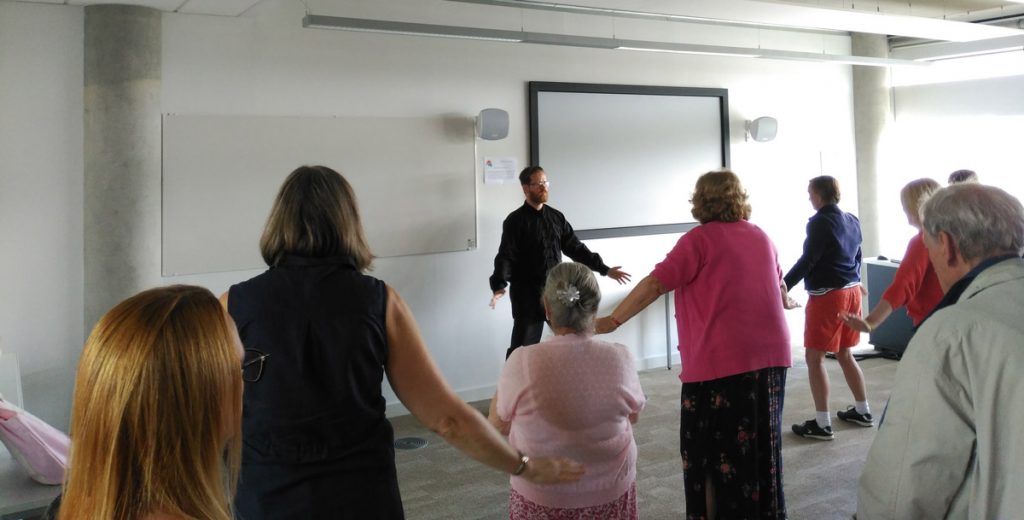


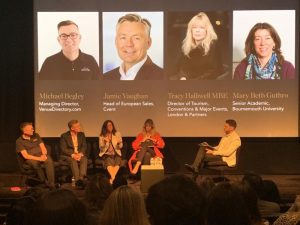
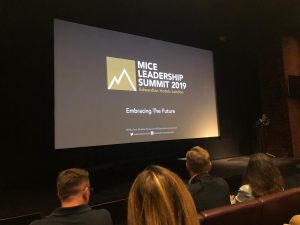
 Writing the impact section in a grant application can be challenging but a strong impact summary and description of the impact pathway/s can make all the difference between getting your research funded or not.
Writing the impact section in a grant application can be challenging but a strong impact summary and description of the impact pathway/s can make all the difference between getting your research funded or not.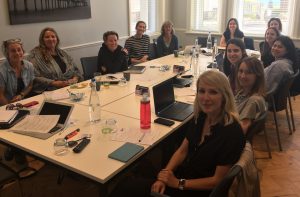


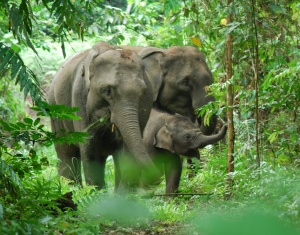
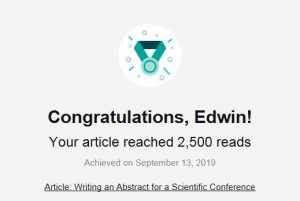

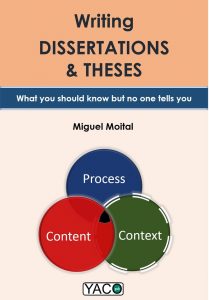
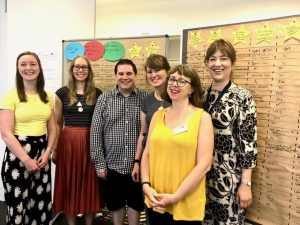











 From Sustainable Research to Sustainable Research Lives: Reflections from the SPROUT Network Event
From Sustainable Research to Sustainable Research Lives: Reflections from the SPROUT Network Event REF Code of Practice consultation is open!
REF Code of Practice consultation is open! BU Leads AI-Driven Work Package in EU Horizon SUSHEAS Project
BU Leads AI-Driven Work Package in EU Horizon SUSHEAS Project ECR Funding Open Call: Research Culture & Community Grant – Apply now
ECR Funding Open Call: Research Culture & Community Grant – Apply now ECR Funding Open Call: Research Culture & Community Grant – Application Deadline Friday 12 December
ECR Funding Open Call: Research Culture & Community Grant – Application Deadline Friday 12 December MSCA Postdoctoral Fellowships 2025 Call
MSCA Postdoctoral Fellowships 2025 Call ERC Advanced Grant 2025 Webinar
ERC Advanced Grant 2025 Webinar Update on UKRO services
Update on UKRO services European research project exploring use of ‘virtual twins’ to better manage metabolic associated fatty liver disease
European research project exploring use of ‘virtual twins’ to better manage metabolic associated fatty liver disease